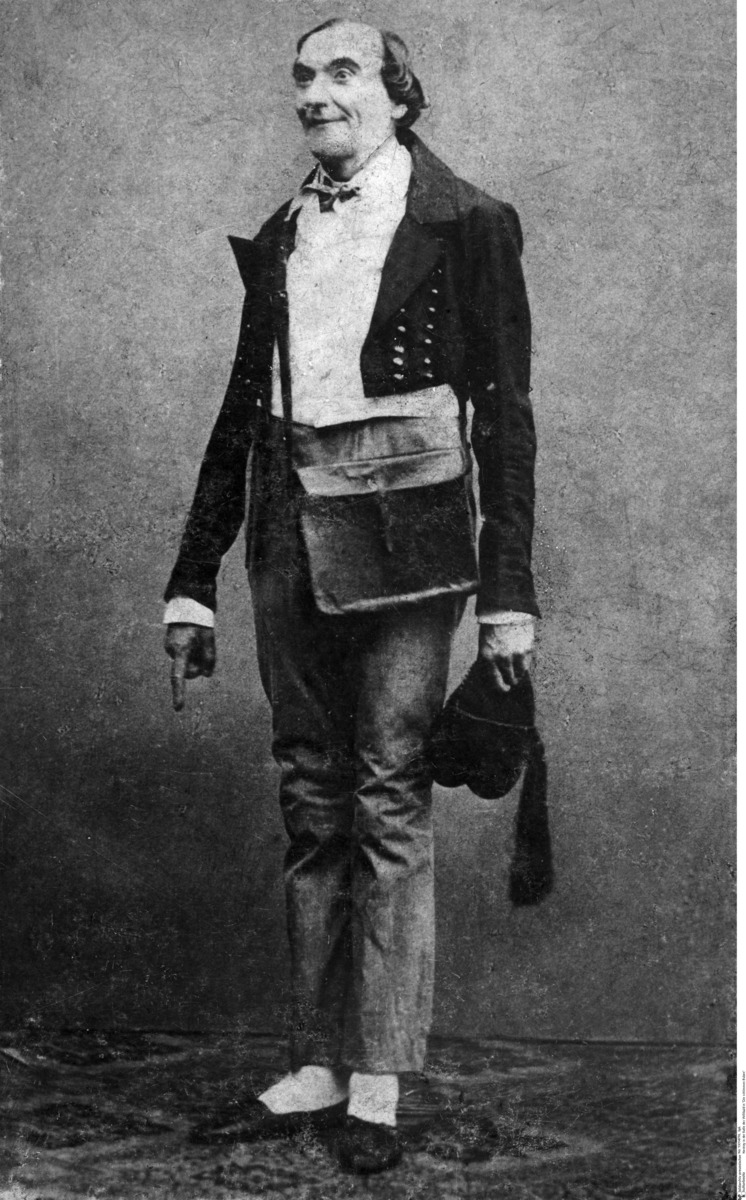Abstract
The Viennese author, actor, and theater director Johann Nepomuk Nestroy (1801–1862) helped move popular suburban theater toward socio-critical themes. Nestroy, a committed adherent of the revolution, enriched his satirical plays with catchy songs, classical quotations, and puns. He also incorporated improvised or planned commentaries on current affairs, a tactic that allowed him to circumvent Metternich’s strict system of literary censorship more than once—the censor might have approved the “harmless” written script, but he had much less chance to intervene against topical pinpricks served up during performances. Nestroy’s literary humor has been preserved in plays that are still performed today, such as The Talisman (premiered in 1840), a critical take on prejudice and class snobbery, and Freedom in Krähwinkel (premiered in 1848), a political satire on the Revolution of 1848–49 that was actually written in its midst. Photographer unknown, 1860.
